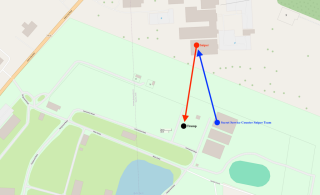Do Assassination Attempts Provoke More Conspiracy Theories?
A wide variety of conspiracy theories circulated rapidly online involving the Donald Trump assassination attempt.
Lisa Bortolotti, from the University of Birmingham in the UK, reacted to this phenomenon by pointing out that several features of these latest conspiracy theories contradict traditional academic theories about conspiracy thinking.

Some academics contend conspiracies are a kind of psychological defense mechanism, linked to feeling powerless. Conspiracy theories should therefore be more popular among the powerless and marginalised.
But, Bortolotti argues, in the case of the Trump assassination attempt, it was also the powerful and successful, who climbed aboard the conspiracy bandwagon.
For example, she points out that almost immediately after the event, a member of Congress, Republican Mike Collins, suggested that President Biden was behind the attack, while Elon Musk framed the Secret Service, hinting that apparent security lapses may have been planned.
Bortolotti also points out that it was both sides of the political spectrum that were drawn in, with the most common theory on the political left being that the shooting seemed too staged to be real, therefore it was faked by the Trump campaign for electoral benefit.
After President John F. Kennedy was shot dead in Dallas in 1963, the Warren Commission reported in 1964 that the assassination was the work of a lone assassin, Lee Harvey Oswald. However, decades later polls indicate that the majority of Americans, some 80 percent, believe that others besides Oswald were involved.
Psychologists investigating the motivational forces that explain the popularity of conspiracy theories concede that the very term ‘conspiracy theory’ itself might be somewhat judgemental. After all, not all conspiracies remain ‘crank’ theories: some have eventually been confirmed, such as the Watergate ‘conspiracy’ of the 1970s.
In a study, ‘The Popularity of Conspiracy Theories of Presidential Assassination: A Bayesian Analysis,’ psychologists Clark McCauley and Susan Jacques, quote one of the most popular theories among psychologists. Conspiracies of Presidential assassination spread because people need to explain big and important events, with proportionately big and important causes.
That such an important person as the President might be killed by an essentially random decision from a ‘loser’ loner, seems implausible because the causal agency, in this case, is so out of proportion with the consequential event.
The ramifications of the assassination are just too gigantic to have such an almost trivial cause.
According to this hypothesis, first advanced by journalist Tom Bethell in ‘The Washington Monthly’ (1975), a lone assassin is too small and insignificant a cause to provide a satisfactory explanation for such large effects on policy and people.
Tom Bethell wrote: ‘When great power is vested in one man, as in the President of the United States, it is always possible that a small cause (a microbe in his blood, for example, leading to a fatal disease, leading to a new President)… can trigger a large effect. In such cases, many people will seek a new cause that is commensurate with the effect—seek, in other words, large and global explanations that thereby imbue the event with appropriate meaning. In the case of the Kennedy assassination, of course, this means looking for a conspiracy—preferably a large one.’ (Bethell, 197S, p. 39)
Psychologists Clark McCauley and Susan Jacques tested Tom Bethell’s theory with an experiment. They suggest that a shot that kills the President is more likely than a miss, to be explained by a conspiracy. A failed assassination attempt will not be so productive of conspiracy theories, compared with a successful assassination.
Their study found that people do indeed associate conspiracy with successful assassination, compared with a failed attempt, but not because of any kind of special need for proportionality of cause and effect, but instead because of a belief that conspiracies are more effective and successful, compared with lone assassins.
Given that psychologists would predict, from this experiment, that people are much more likely to entertain a conspiracy explanation when the President is shot and killed than when he is shot at and missed, therefore, the popularity of conspiracy theories following the failed assassination attempt on Donald Trump, would appear to contradict what scientists expected.
However, one way of resolving the apparent contradiction is to frame the failed attempt as actually a success, because of what it achieved. If Trump becomes much more popular or electable as a result of the failed attempt, then conspiracy theorists are contending this is not a ‘failure’ event but instead a ‘success.’
The outcome of increased popularity was the intention of the conspiracy all along.
Karen Douglas and Robbie Sutton, psychologists from the University of Kent in the UK, examined conspiracy theories around the death of Princess Diana.
Almost immediately after the the death of Princess Diana, on August 31, 1997, people began to question the incidents surrounding the accident that killed her and her partner, Dodi Fayed.
For example, one theory suggested that Diana staged her death so that she and Dodi Fayed could retreat into isolation.
The researchers found that being exposed to conspiracy theories surrounding Princess Diana’s death meant that participants underestimated the extent to which their attitudes were influenced. The researchers found that participants were oblivious to the effect that these conspiracy theories had on their attitudes. They correctly assumed that others from the same demographic as themselves were influenced, but denied the full extent of influence on themselves.
Conspiracy theories may be more powerful than we realise because they fulfill a deep need to explain events that are beyond our control. Conspiracy theories therefore may be a response to our sense of ‘powerlessness.’ Another possibility is that conspiracy theories act as a means for less powerful individuals to imagine themselves in possession of powerful, or secret information.
One way to achieve significance in a world where you feel insignificant is to be the source of special privileged information that grabs attention.
According to this argument, conspiracy theories are a kind of attempted power grab in the competition for attention. A bid to compete with those really in power. This may explain why, in the case of the Donald Trump assassination attempt, it was also the dominant who now took to social media to promulgate such theories because they had an instinct this is now in the modern world, an effective way to maintain attention and influence.
Lisa Bortolotti argues it was the sheer length of time that it took for an official explanation to emerge in the case of the Trump assassination attempt, that ignited conspiratorial thinking. For example, we still don’t yet understand, properly, the motivation behind the lone attempted assassin in this case, and we may never know.
When the causes of the event are not immediately clear, Bortolotti contends, we are more likely to fill any information vacuum with accounts, no matter how unfounded, that help us restore some kind of apparent mental control over an uncertain reality.
We are driven by a fundamental need to believe we know and understand the unpredictable, confusing, and complex world around us.


